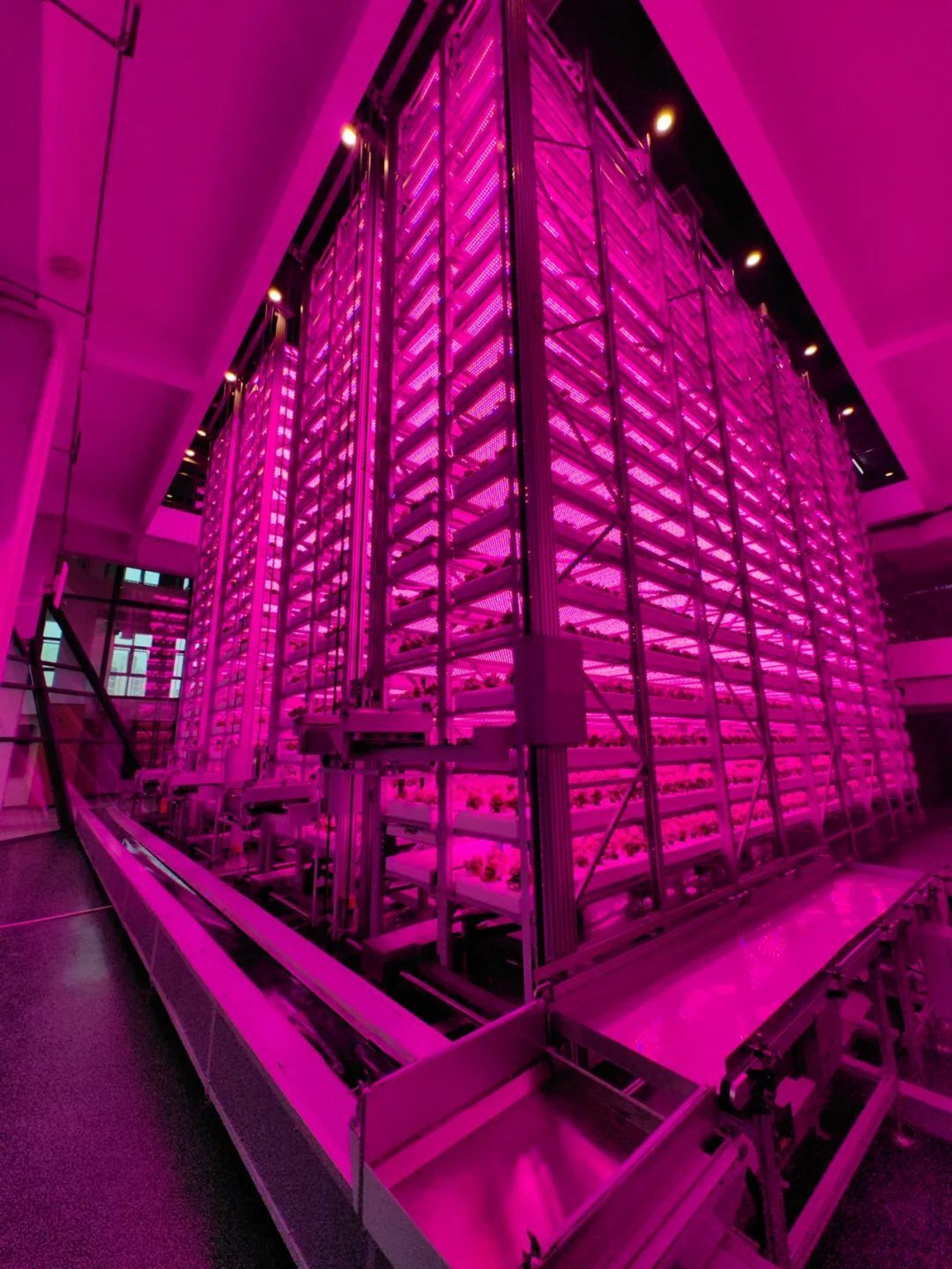The 20-storey urban farm, built under the oversight of the Chinese Academy of Agricultural Sciences in a downtown part of the provincial capital Chengdu, represents world-leading automation in farming, according to state broadcaster CCTV.
It also marks the latest effort to leverage technological innovation to ensure there is enough food to feed the country’s 1.4 billion people, as the nation’s self-sufficiency drive has become increasingly prioritised against the backdrop of geopolitical tensions that could affect imports and supply chains.
Vertical farms, which have been seen in countries such as Japan, Singapore and the United States, are efficient agricultural systems that enable year-round continuous food production within multi-story structures. They can operate anywhere from urban settings to deserts, offering significant advantages in providing stable food supplies to areas where traditional farming is not possible.
China’s skyscraping pig farms are high on the hog amid food-security drive
China’s skyscraping pig farms are high on the hog amid food-security drive
Xi specifically mentioned the need to cultivate vegetables in urban and barren regions, and he pointed to success stories in Gansu province and the Xinjiang Uygur autonomous region, which have arid to semi-arid climates.
“Through various forms of technological upgrades and facility construction, many lands that were previously unsuitable for agricultural production can now be utilised,” Xi reportedly said at the meeting, according to a transcript published on Friday by Qiushi, a top theoretical journal of the Communist Party.
CCTV said that Chengdu’s vertical plant farm utilises a range of cutting-edge technologies – including autonomously bred crop varieties, a vertical three-dimensional cultivation system, an automatic nutrient-supply system, energy-efficient artificial lighting emulating natural conditions, and an AI-based control system – to ensure stable production within vertical spaces.

Unaffected by climate and geographical constraints, the Chengdu facility can reportedly produce a harvest of lettuce every 35 days under controlled environmental conditions. Other leafy greens, fruits and edible mushrooms can also be produced on a large scale within the vertical plant factory, according to state media.
Given the lengthy breeding cycles of crops, researchers often need to travel to tropical regions such as the southernmost province of Hainan during the winter to expedite the breeding progress. However, within the unmanned vertical farm in downtown Chengdu, this process is expedited through a breeding accelerator.
Such technology, unrestrained by land, space and climate conditions, precisely regulates light and nutrients, inducing early flowering and promoting rapid crop growth, significantly shortening the crop’s growth cycle.
The scientists said that the produce grown in the vertical farm is just as nutritious as that grown on farmland.
With technology continually improving, China has been increasingly carrying out agricultural activities on non-traditional arable land resources.


